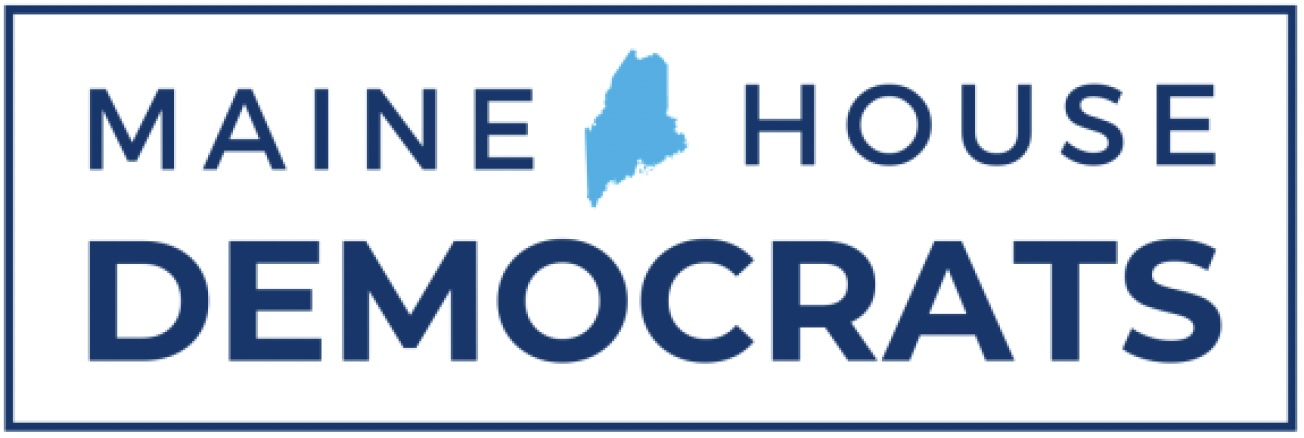AUGUSTA - The Legislature's Appropriations and Financial Affairs Committee approved a supplemental budget that supports Maine workers and small businesses on Thursday. The vote was 8-5. The bill gives Maine businesses and unemployed Mainers a break from paying taxes on relief funds they received during the pandemic.
Republicans rejected two compromise proposals on the Paycheck Protection Program both from the Mills administration and Democrats on the AFA Committee in favor of a proposal that costs an additional $32 million.
"Maine people and businesses have experienced extraordinary financial hardship and a never-ending series of setbacks over the past year as our state and country responded to a public health crisis. As lawmakers, we have a responsibility to come up with a responsible supplemental budget proposal that lifts up the everyday Mainers and small business owners that have had their livelihoods threatened, and in some cases vanished, through no fault of their own," said Sen. Cathy Breen, D-Falmouth, Senate Chair of the Legislatures Appropriations and Financial Affairs Committee. "With the looming tax deadline, we owe it to Maine taxpayers to settle the supplemental budget and tax conformity, not fight over three-martini lunches and offshore tax havens. Since Gov. Mills released the first supplemental budget proposal on January 8, Legislative Democrats have tried to meet our Republican colleagues halfway, first offering a compromise on PPP conformity, then agreeing to fully conform to the federal government on PPP. Now, we have a proposal that puts targeted relief where we need it most and deserves two-thirds support before the full Legislature next week."
"Maine is at a pivotal moment as we start to look ahead at economic recovery. But we are not out of the woods yet. There are still Maine families struggling because of this year's crisis. In the supplemental budget, we compromised on 100% conformity for all PPP recipients. In turn, we asked that this proposal include support for direct care workers and behavior health services, protecting Maine providers from having to close. We heard those workers loud and clear during this process. For anyone who received unemployment insurance in this difficult year, we are stepping up for them too by exempting their UI benefits from being taxed," said Rep. Teresa Pierce, D-Falmouth, House Chair of the Legislatures Appropriations and Financial Affairs Committee. "This proposal is responsible, fair and gives folks stability. I want to commend my colleagues for weeks of committee work to arrive at this commonsense proposal ahead of tax time so Mainers get a break on their taxes in this time of need."
The supplemental budget will now go before the full Legislature for consideration when lawmakers convene at the Augusta Civic Center next week. It must secure a two-thirds vote in both the House and Senate before going to Gov. Janet Mills' desk for her signature.
SUPPLEMENTAL BUDGET HIGHLIGHTS
- Critical relief for 160,000 Mainers who lost their jobs due to the pandemic: The supplemental budget includes $47 million to exempt unemployment benefits from state income taxes for hardworking Mainers, who lost their job through no fault of their own. This includes self-employed Mainers who saw their work dry up and Mainers who saw their workplaces close. Without this relief, Mainers who relied on unemployment benefits at some point during the pandemic wouldve been hit with $200-$500 per person in state taxes.
- Support for Maine businesses: The supplemental budget allocates $100 million to exempt Maine businesses who accessed relief through the Paycheck Protection Program from state income taxes. This relief would support more than 28,000 businesses across the state.
- Targeted-relief to direct care workers and nonprofit providers: The supplemental budget proposal provides $30 million in state and federal money to the people who provide quality, compassionate care to Maine seniors and individuals with disabilities. These are targeted funds for nonprofit providers that did not get Paycheck Protection Program funds, state grants or any other relief and have struggled to meet the needs of Maine people, especially as COVID-19-related mental health concerns increase. These funds target people who provide support through MaineCare sections 18, 20, 21, 29, 17, 28 and 65.
OTHER KEY PROVISIONS:
- Supports the Early College Aspirations program for working-class Mainers: The Aspirations Program provides eligible Maine high school students with an opportunity to receive academic credits toward a high school diploma, and an associate or baccalaureate-level degree, through enrollment and successful completion of college-level courses at approved Maine institutions.
- Invests in a new Comprehensive Child Welfare Information System: This efficient new system, which improves DHHS's ability to track and share data, will allow caseworkers to spend more time working directly with families.
- Takes steps to address contamination from "forever chemicals": The supplemental budget establishes a fund to address growing concerns with PFAS.
- Promotes the construction of affordable housing in Maine: Language in the budget maximizes the value of Maines low income housing credit by conforming with a recent
- change to the federal credit.
Contact:
Christine Kirby (Breen), (207) 294-2468
Jenna Howard (Pierce) , (207) 214-3185

